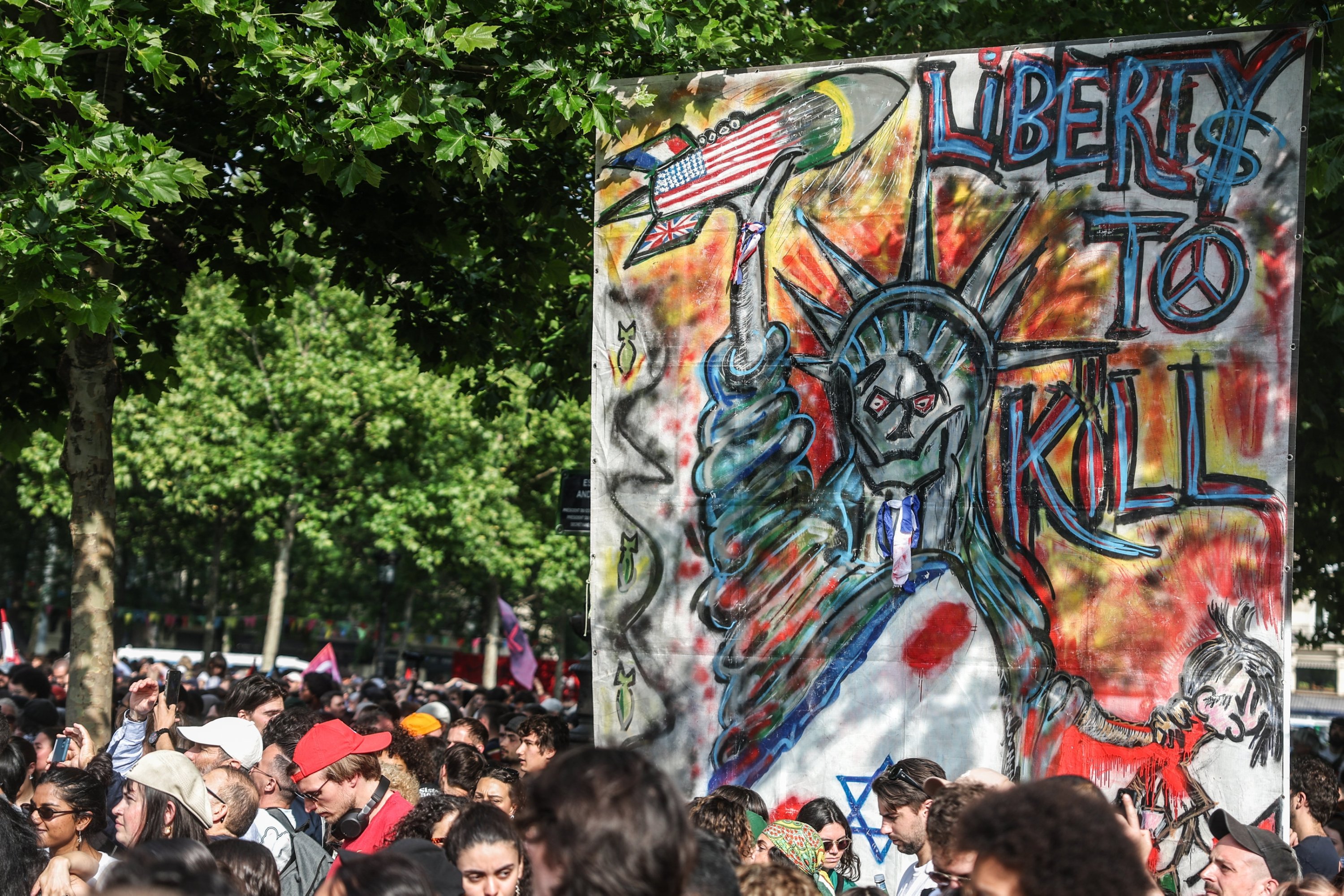© Turkuvaz Haberleşme ve Yayıncılık 2026
In France, home to the largest Arab and Jewish communities in Europe, mentioning the recognition of Palestine is not a symbol; it's a political act. Following his diplomatic visit to Egypt in April 2025, the French president said he was ready to recognize the existence of a Palestinian state in June 2025. “It's the only way to save the two-state solution," he said.
Yet, the conditions Palestinians face, particularly in the obliterated Gaza Strip, as a result of the genocidal process, continue. The messianic government in Tel-Aviv is violating all the basic rules of international humanitarian law by imposing a starvation policy by strictly controlling the entrance of humanitarian medical and food aid to Gaza for more than three months. In addition, the annexation of the occupied West Bank and daily religious fanatic settlers’ incursions into the Al-Aqsa Mosque esplanade continue.
The establishment of a just and lasting peace between Israelis and Palestinians requires respect for the rights of Palestinians, which have been recognized by numerous United Nations resolutions. This requires the implementation of the two-state solution, based on the 1967 borders, existing side by side, with Jerusalem as the capital of both states, as defined by numerous agreements and specified in December 2016 by U.N. Security Council Resolution 2334.
In 2014, the French Parliament voted in favor of the immediate recognition of a State of Palestine. In fact, Paris' “balanced” Israeli-Palestinian conflict policy did support the Madrid process in 1991 that led to the 1993 Oslo Accords. The Oslo Accords provided a possibility of a lasting peace process between the two sides, yet its premises imploded when Israeli Prime Minister Yitzhak Rabin was assassinated three decades ago, and were buried by the current religious zealot government when the large majority of Israel's MPs who vehemently rejected Palestinian statehood last summer, by declaring the creation of a Palestinian state an “existential danger” to Israel.
Immediately, the Israeli Foreign Ministry labeled French President Emmanuel Macron's acts as a “crusade against the Jewish state” after he called on the international community to toughen its stance toward Israel if the humanitarian situation in Gaza did not improve.
Paris quickly reiterated the wishful thinking of the peace process; however, since Oct. 7, the Israeli-Palestinian conflict and the region’s geopolitical determinants have changed drastically.
France wanted to co-chair an international conference on the so-called two-state solution for Israel and Palestine, along with Saudi Arabia, at the U.N. in New York on June 17-20. Without clearly stating whether he would recognize a Palestinian state on this occasion, Macron listed the conditions: release of the hostages held by Hamas, demilitarization of the Palestinian movement, its non-participation in the governance of the Palestinian state, reform of the Palestinian authority, recognition of Israel by Palestinian state and the creation of a security architecture throughout the region.
But what Macron misses is that Israeli Prime Minister Benjamin Netanyahu and his government do not want to hear anything about Palestine, as he said many times that "Gaza will be neither Hamastan nor Fatahstan.” Certainly, he wants a "dystopianstan," a new Middle East!
As far as the peace process between Palestinians and Israelis goes, Tel-Aviv wants capitulation, not peace with its neighbors. The so-called normalization is just an occupation and assimilation process by other means. The Arab countries proposed the "Beirut Peace Initiative" to Israel in 2002, at the Beirut summit, and re-endorsed it at the 2007 and 2017 Arab League summits.
The initiative offers normalization of relations by the Arab world with Israel, in return for a full withdrawal by Israel from the occupied territories, including the West Bank, Gaza, the Golan Heights and Lebanon, with the possibility of comparable and mutually agreed minor swaps of the land between Israel and Palestine.

This diplomatic sweet talk was possible in the 1990s. The ongoing genocide in the Gaza Strip, apartheid in the West Bank, and daily military aggression on Lebanon, Syria and Yemen are not signs of normalization, nor peace and security in the region
As a result, France did cave in to the powerful Israel lobby in itself. In France, powerful pro-Israeli politicians and lobbies, such as the Representative Council of French Jewish Institutions (CRIF) and the European Leadership Network (ELNET), a leading NGO dedicated to strengthening Europe-Israel relations, overwhelmingly criticize Macron’s statement to eventually recognize the Palestinian state. The CRIF could be seen as the second Israeli Embassy in Paris.
For the French president, who is a lame duck because of the ongoing political crisis that he created a year ago, to have made a symbolic statement is just another layer to his incoherent MENA foreign policy, weakening France's role as a permanent member of the U.N. Security Council, and embarrassing Gulf states such as Saudi Arabia.
Now, in the light of the ongoing Iran-Israel war, any development regarding Palestine has been postponed, despite mounting international pressure and growing frustration over Israel's starvation and scorched-earth policy in the Gaza Strip and the West Bank.
The goal of Palestinian steadfastness remains the same in all cases: the establishment of an independent, sovereign Palestinian state on Palestinian land, not in Sinai, where Egypt's national security is in stake like the Messianics in Israel want, nor on the French Riviera like U.S. president and his ambassador in the occupied Al-Quds suggested. The steadfastness of the Palestinians is their resistance in the occupied Palestine. They are entitled to full, unconditional and effective diplomatic support of France and the rest of the international community, which lost its humanity and dignity, performing a tango dance on the backs of Palestinians and leaving the Messianic Israeli government with complete impunity.
